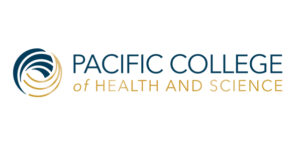Infertility is defined as the inability to conceive a baby after one year of trying. Women who suffer miscarriages are also said to be infertile. Infertility affects about 7.3 million women and their partners in the United States. Women and men share the problem of infertility about equally.
Clinical observations from the Berkley Center for Reproductive Wellness suggest that the most effective fertility treatments combine acupuncture, herbal medicine, and traditional medical interventions. It should be noted that conception sometimes occurs when acupuncture and herbal medicines are used without the intervention of traditional medical treatments.
150 Herbs Mixed in “Cocktails”
There are currently over 150 different herbs one can use to treat infertility. No individual herb is considered especially useful for promoting fertility. Instead, herbs are usually given in combination and frequently adjusted for a particular patient. Herbs are often given as pills, powders, tablets, and teas. Herbs are usually discontinued once pregnancy is suspected or confirmed.
Acupuncture Addresses Various Problems/Issues
Acupuncture originated in China more than 2,000 years ago, and is one of the oldest medical procedures in the world. Chinese herbs, bodywork, lifestyle/dietary recommendations and exercise have been shown to restore imbalances found in the body. Acupuncture addresses problems/issues that affect fertility. It can offer these benefits:
- Improve ovarian and follicular function to yield higher quality eggs
- Increase blood flow to the uterus to promote a thick, rich lining
- Regulate hormones for increased production of follicles
- Prevent uterine contraction after an IVF embryo transfer
- Reduce the side effects of IVF medications
- Improve sperm count and motility
Another advantage of using traditional Chinese medicine in treating infertility is that it minimizes certain undesired side effects and the accumulated toxicity from invasive procedures and drugs. Using acupuncture for fertility treatment poses some risks, however. A miscarriage may occur if incorrect acupuncture points are used on a pregnant woman. This is why infertile patients should only be treated by an acupuncturist who specializes in treating fertility disorders.
Are you interested in becoming a certified acupuncture professional?
Visit the links below to explore our specialized acupuncture programs at a campus near you:
Before and After IVF
Experiments using Chinese medicine to supplement In-Vitro Fertilization (IVF) at the University of Texas revealed that Chinese medicine increases the success rate of IVF by as much as 50 percent. Patients are given herbs and acupuncture at several critical stages during the procedure. At the first stage, herbs and acupuncture are administered to ensure smooth flow to the ovaries. This is followed by Chinese herbs and acupuncture to ease the side effects of drugs used to stimulate egg production. Other herbs are used before implantation to relax the muscles, prevent contraction, and improve the embryo to implant on the uterus.
Acupuncture treatments usually average 15 minutes, once or twice a week. While some patients have experienced bleeding or a mild allergies , most people experience no side effects from acupuncture therapy.
Caveats
In 1996, the U.S. Food and Drug Administration approved acupuncture for use by licensed acupuncture practitioners. Prospective patients should note that acupuncture is an art and a science that takes years to master. Use an FDA approved, licensed acupuncturist with formal training and experience in the treatment of infertility. Be sure to discuss any acupuncture and herbal treatments with your doctor to ensure they are right for you.
Featured Posts:

